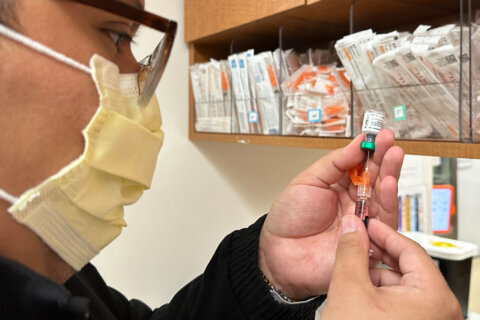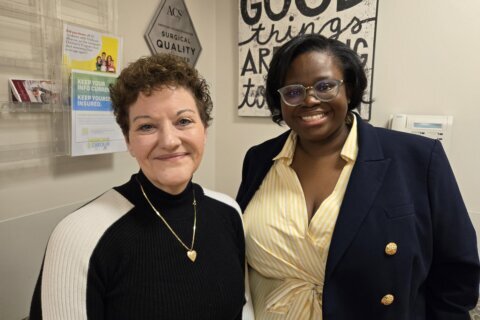WASHINGTON — Every day, millions of Americans use cosmetics, lotions, perfumes and hair products to enhance their image, but all of that grooming could be harmful to their health — especially for black women.
Research conducted by the Environmental Working Group found that one in 12 personal care products marketed to black women ranked highly hazardous on the organization’s scoring system for its Skin Deep Cosmetics Database.
The study also found that less than 25 percent of the 1,177 products analyzed were considered “low hazard,” compared to about 40 percent of the items in Skin Deep that are marketed toward the general public.
“This is a problem, particularly because market data shows that black women appear to buy and use more personal care products than the general public,” said Nneka Leiba, EWG’s deputy director of research.
“This limited option in healthier products could mean that they’re being exposed to more potentially hazardous chemicals.”
EWG scored products, ranging from shampoo to eye shadow, based on the entirety of their ingredient lists. Paul Pestano, EWG senior database analyst, said many of the products are made from ingredients that are allergens and endocrine disrupters, such as parabens and phthalates.
However, most concerning, Pestano said, is the unidentified “fragrance” common on many ingredient lists.
“It’s a mixture of chemicals that the general public does not have information on because companies don’t have to list the components of these fragrances,” he said.
The product categories of biggest concern from the analysis are hair relaxers and dyes and concealers and foundations. This does not come as a surprise to Linda Goler Blount, president and CEO of Black Women’s Health Imperative, since the purpose of these products is to alter something that occurs naturally, such as hair texture.
“By the fact that they change what is naturally occurring, it’s not surprising that they would be toxic,” Goler Blount said.
The research from EWG is new, but Goler Blount said the problem started hundreds of years ago.
“The root in all of this is in perceptions of standards of beauty, and you can go all the way back to when Africans were first brought here. The white culture established the standard for beauty and these products were a way for women to meet that standard,” Goler Blount said.
“In this country and in the Caribbean, women use skin lighteners to lighten their skin.”
Her best piece of advice for all women, and black women in particular, is to read the labels, look up questionable ingredients and start a conversation with stylists if they’re concerned about the products being used on their hair.
She also encourages women to advocate for healthier products.
“We want women to make this an issue,” she said. “The companies are only going to respond if there’s enough pressure for them to respond.”
EWG’s Leiba said this most recent study is just a snapshot that illustrates a much bigger issue: “And that is the lack of regulation over personal care products, and the fact that companies are basically self-regulating because the FDA underregulates personal care products,” she said.
According to the Food and Drug Administration’s website, “Cosmetic products and ingredients are not subject to FDA premarket approval authority, with the exception of color additives. Cosmetic firms are responsible for substantiating the safety of their products and ingredients before marketing.”
However, personal care products that can also be defined as drugs, such as dandruff shampoo, antiperspirants and toothpastes containing fluoride, must receive premarket approval by the FDA or “conform to final regulations specifying conditions whereby they are generally recognized as safe and effective, and not misbranded.”
If you’re concerned about the safety of your products, Leiba has some advice. First of all, she said products with fewer ingredients are generally best. Minimizing the number of products you use is another way to limit exposure to potentially harmful chemicals.
The good news is, there are more options for safer products today. In the last several years, many companies have changed their ingredients based on consumer demand.
“You may notice a lot of products market themselves as ‘free of this’ or ‘free of that’ … that is not a marketing tool that was happening 10 years ago,” Leiba said.
Goler Blount hopes that change continues, especially in the black cosmetics industry.
“Black women want to look beautiful, just like everybody else, but we need to be able to do it safely,” she said.







